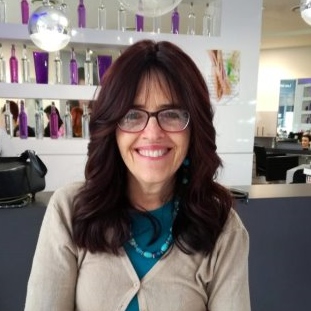
News

Pesach heroines lead the way for today’s abused women
WENDY HENDLER
When Pharaoh aims to destroy the Jewish people through systematic and barbaric slavery and by the killing all first-born male children, it is the women who flout his decree.
First, the midwives refuse to obey him, and they let the boys live. As Pharaoh commands that all the male children be thrown into the river, a mother hides her son in a watertight basket.
Moshe’s sister, Miriam, approaches the princess, Pharaoh’s daughter, at the river, and finds a way to connect with her sense of compassion.
Then, in an act of rebellion against her father, the Egyptian princess saves the baby, Moshe, and brings him into the palace as her adopted son. This paves the way for Moshe’s evolution into the spiritual leader and saviour of the Jewish people.
Across all ethnicities and divides, women collaborate to affirm life even at the risk of their own safety. Their triumph is one of the human spirit – the courage to defy immoral orders and injustice, and stand up against abuse. It speaks directly to all women today who find themselves in abusive relationships.
How tremendously difficult must it have been for these women to find their inner strength and act to obstruct tyranny in a world that conspired to crush their humanity?
And how difficult is it for women today to speak out or to defy their abusers? How do women reach the turning point of saying no, and putting themselves first in the relationship?
The first step is for her to recognise that what she is experiencing is abuse. The next step is to understand the cycle of abuse, and to be able to pinpoint her position in the cycle.
The cycle of abuse starts with a rise in tension in the relationship. There may be angry outbursts, demeaning comments, and threatening behaviour. These escalate until there is a violent explosion, sometimes physical, more often verbal and emotional.
The women is terrified, disempowered, and made silent. The next stage is the honeymoon stage. The partner, fearing that she may leave him, apologises profusely, brings gifts, proclaims his undying love, and commits to never repeating the behaviour.
The woman feels confused, but needs to believe him and trust in his promises. She drops her guard, and lets him back into her heart. Things may remain calm for a period but, soon enough, there is another rise in tension and the cycle repeats itself.
The danger of this pattern is that the abuse becomes entrenched, and the level of violence tends to escalate with each cycle.
The damage to the woman’s psyche is enormous. Her sense of self is eroded. She is made to take the blame for his abusive behaviour, and lives in fear of another outburst.
She lives her life on high alert, watching every step of her behaviour to avoid “provoking” him. Her sense of safety in her home, as well as her world, is destroyed.
Recognition of the fact that she is a victim of abuse is extremely empowering. Knowledge that it is not her fault, and that nothing she does or does not do causes his behaviour, is liberating.
It frees her to regain her sense of self, and the knowledge that she matters. The way is now open for her to make some healthy choices.
While it has always been taboo for women to talk about the abuse they were suffering at the hands of their partners, the tide is turning.
With the advent of movements such as the #MeToo movement, it has now become more acceptable for women to find their voice and share their stories without fear of blame or guilt.
Women worldwide are leading the way in highlighting abuse and its consequences. Zero-tolerance to all forms of abuse is being assimilated into society’s norms and values.
Just as the women in the Pesach story took a stand for the dignity of human life, so women today are taking a stand for the dignity of women.
No longer is it safe to hold a woman hostage in an abusive relationship through fear and intimidation. Jewish women, too, are finding their voices, standing up to injustice, and following the example set thousands of years ago by the courageous women who ensured the continuity of the Jewish people.
- Wendy Hendler is the co-founder of Koleinu SA.




